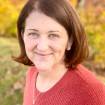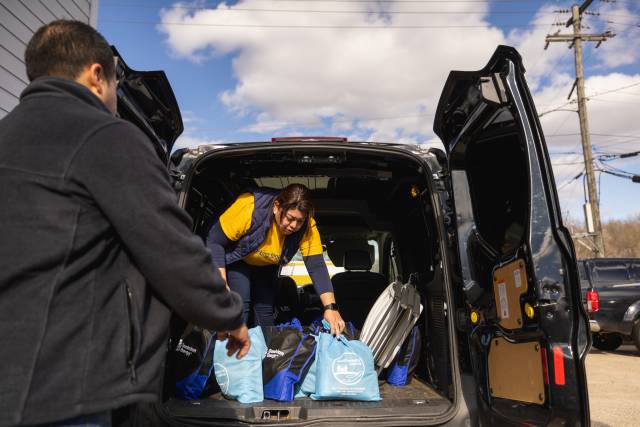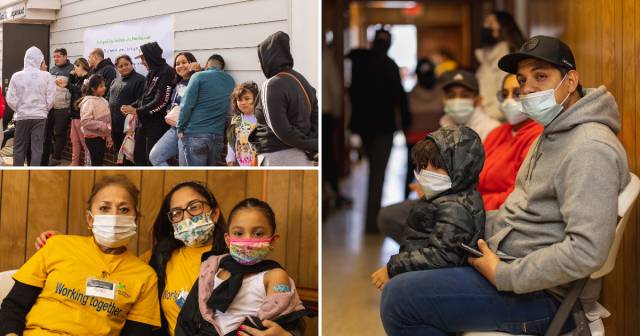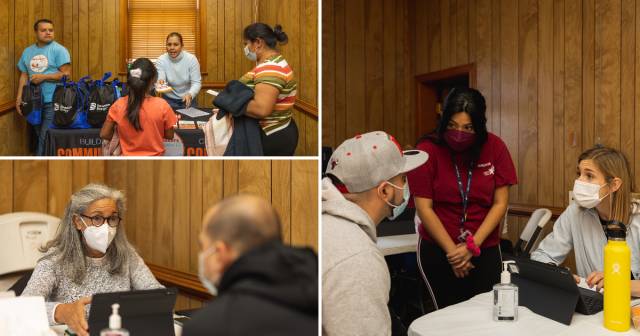You are here
Bridging the Health Gaps in Richmond, VA
In the early morning hours of January 21, 2023, temperatures in Richmond, VA dropped below 30 degrees. Because of the cold weather, Larisa Ramos, an event coordinator with the nonprofit La Casa de la Salud (LCS), wasn’t sure the organization would get much of a turnout for their food pantry and COVID-19 and flu vaccination clinic. When Ramos arrived to set up for the event, she was surprised to discover dozens of people lined up outside the venue.
“I thought, oh my God this is amazing,” Ramos said. “At our first vaccine event two years ago we got, I think, four people vaccinated, and here people were making a line for getting vaccines.”
La Casa de la Salud began in 2014 as a pilot study by Virginia Commonwealth University to identify and explore the needs of the growing Hispanic population in the Richmond, VA metro area. Today, LCS has become a trusted and vital part of this community—working to improve the lives and health of Hispanic families.
“In Richmond, the Hispanic community is multicultural and very diverse. We have people from Guatemala, El Salvador, Peru, Columbia, Venezuela,” said Ramos, who also serves as a community health worker with the organization. “La Casa de la Salud is the bridge that connects the Hispanic community with all the resources in the community.”
This support was critical when COVID-19 vaccines were first introduced and Spanish speaking residents in Richmond were struggling to get the information and access they needed. With funding from the CDC Foundation, LCS developed vaccine education and outreach approaches to overcome language barriers and limit the spread of misinformation.
“In the beginning it was very hard. When people tried to get vaccinated in the pharmacy, they had to make an appointment and fill out forms, and those forms were all in English,” Ramos said. “La Casa de la Salud created events to vaccinate people in the community. The health workers were there to help people fill out forms, and the information was in Spanish.”
The organization also recruited respected local leaders, including business owners and clergy, to help communicate accurate information about the safety and importance of vaccination.
Such partnerships have been instrumental to the success of LCS’ vaccine outreach. They have developed longstanding relationships with local nonprofits, health care providers and the Virginia Department of Health to offer community members a variety of essential services and care along with vaccine information and access. For the January vaccine event, the venue space was donated by Quintanillas Management, a local Latino-owned business. LCS collaborated with Richmond’s Waymakers Foundation, which runs a food bank serving immigrant families, and other organizations that help with health insurance enrollment and provide support for those dealing with domestic violence.
By giving their community members greater access to these resources, LCS hopes to empower people to take an active and informed role in managing their health. Ramos recalls two friends who came to the January event with different perspectives on vaccines; one man wanted to get vaccinated, but the other was hesitant. LCS created a friendly, open environment where the men could talk to community health workers and each other about their concerns and questions. Ramos believes conversations like this help people navigate complex health issues and decisions, and in this case, it was a success.
“Yes,” Ramos said, “they both left there vaccinated.”
This project is supported by the Centers for Disease Control and Prevention (CDC) of the U.S. Department of Health and Human Services (HHS) as part of a financial assistance award totaling $21,007,444 with 100 percent funded by CDC/HHS. The contents are those of the author(s) and do not necessarily represent the official views of, nor an endorsement by, CDC/HHS or the U.S. Government.



